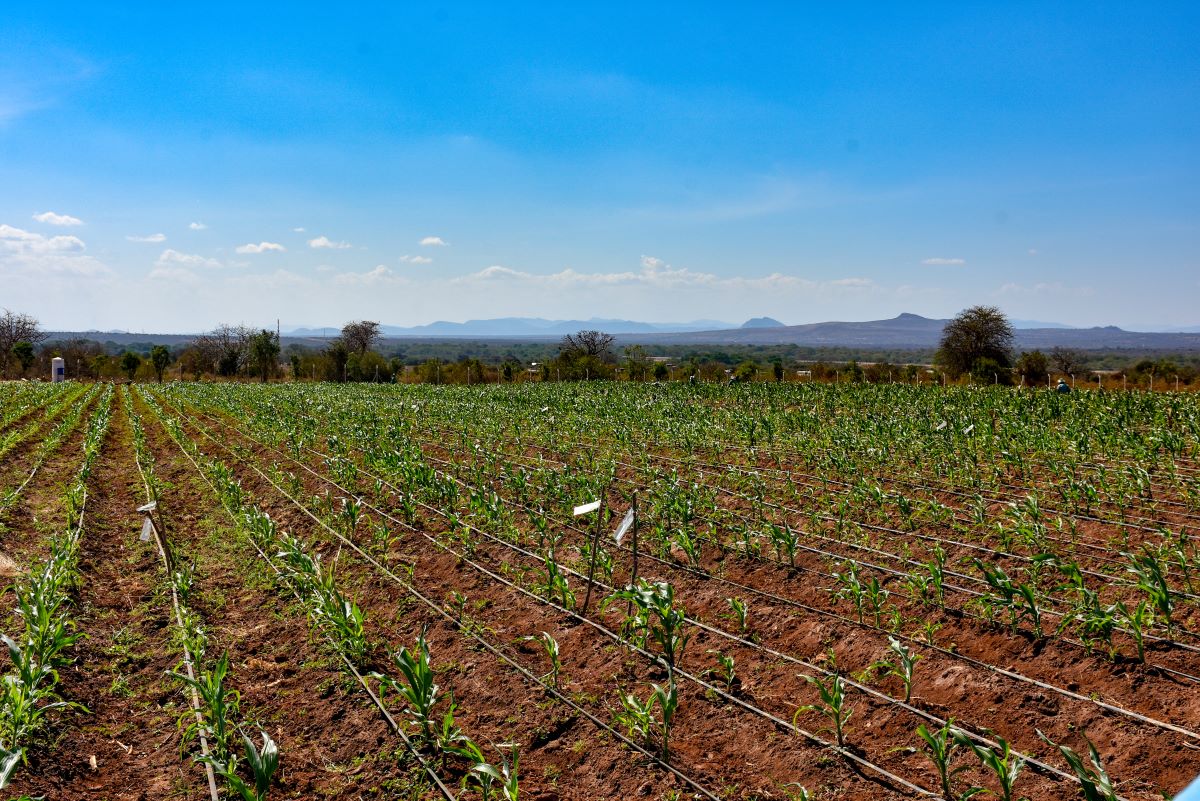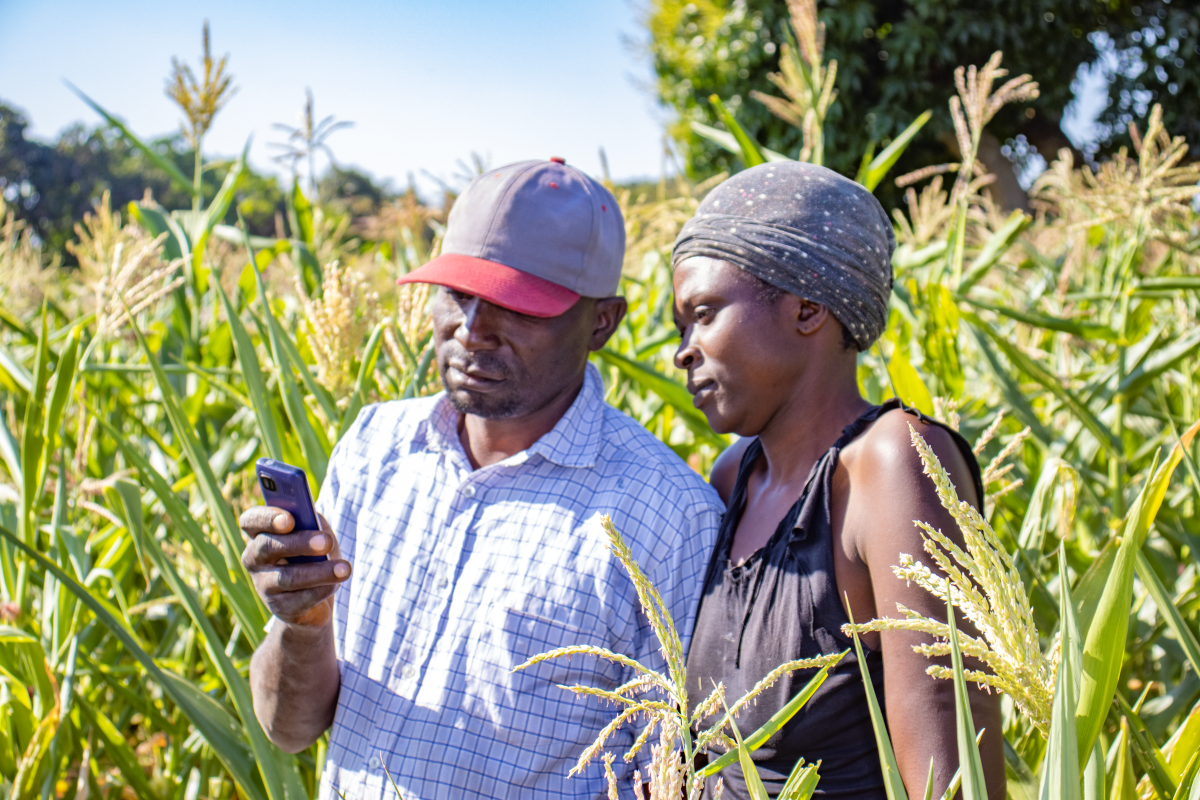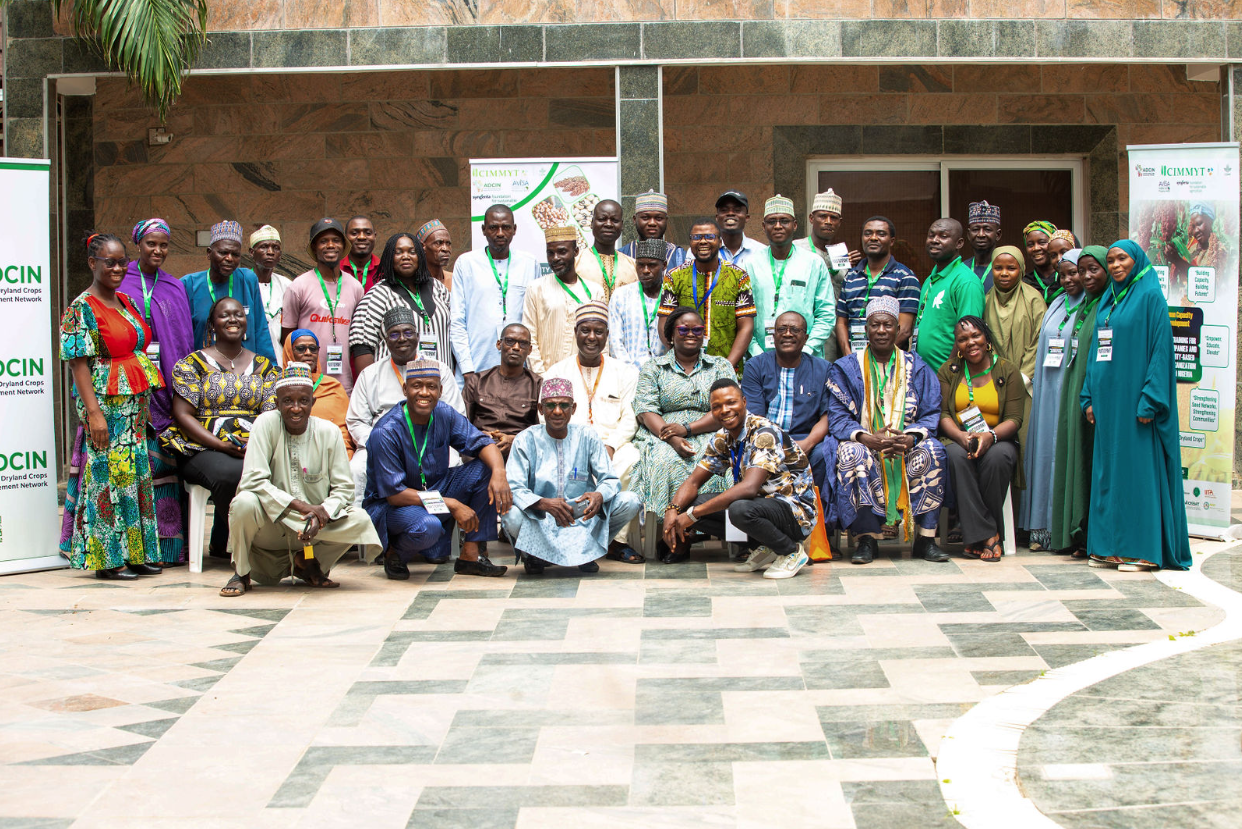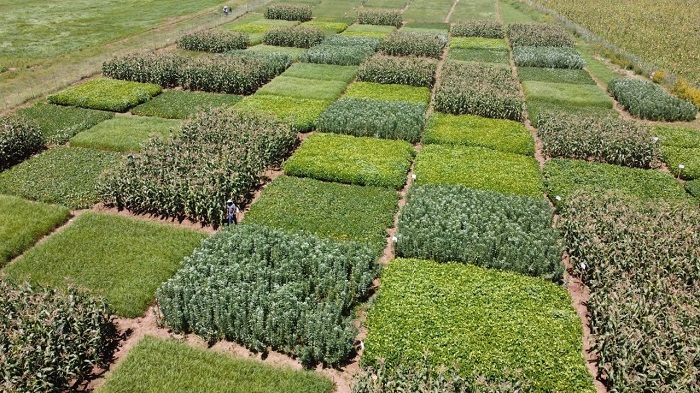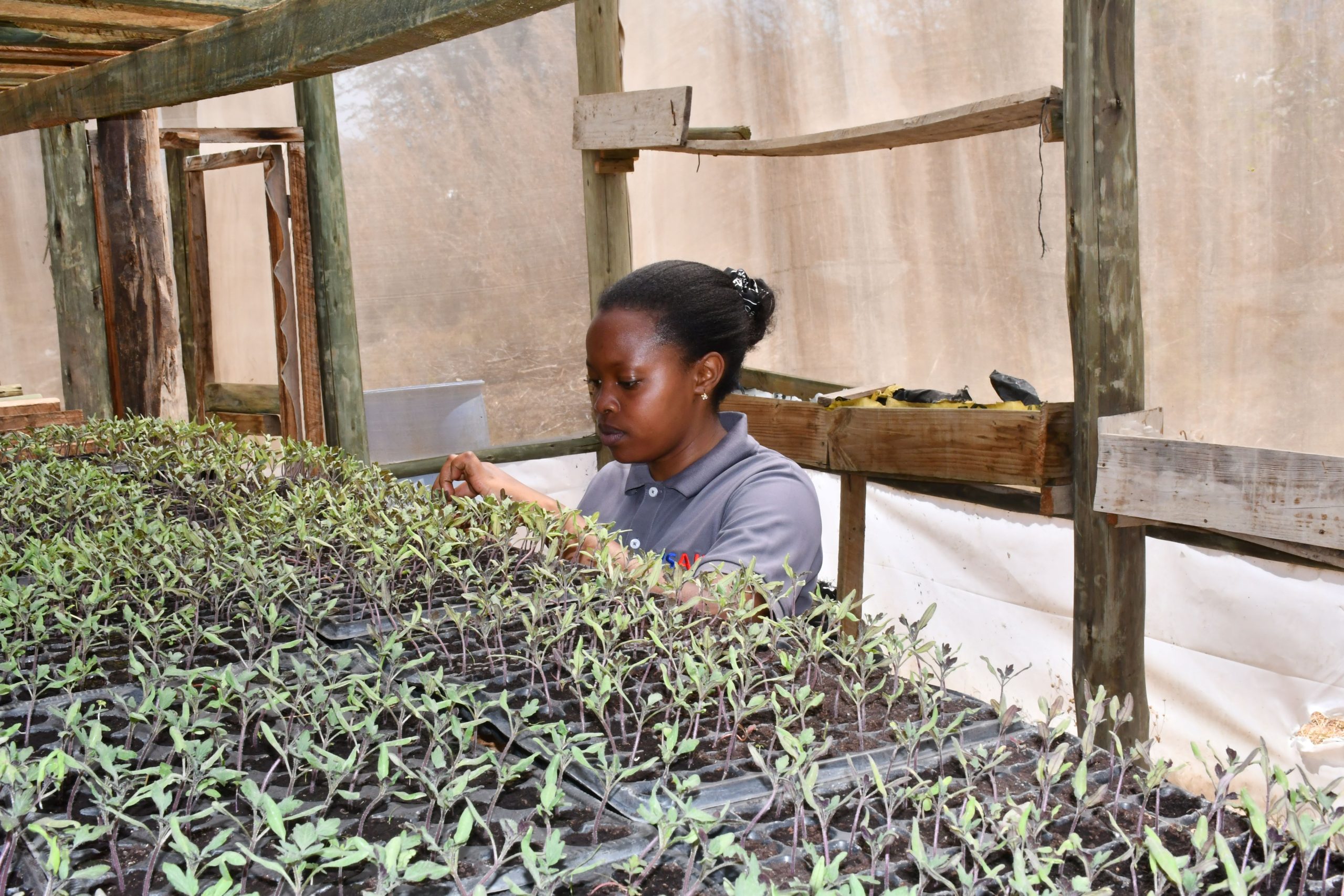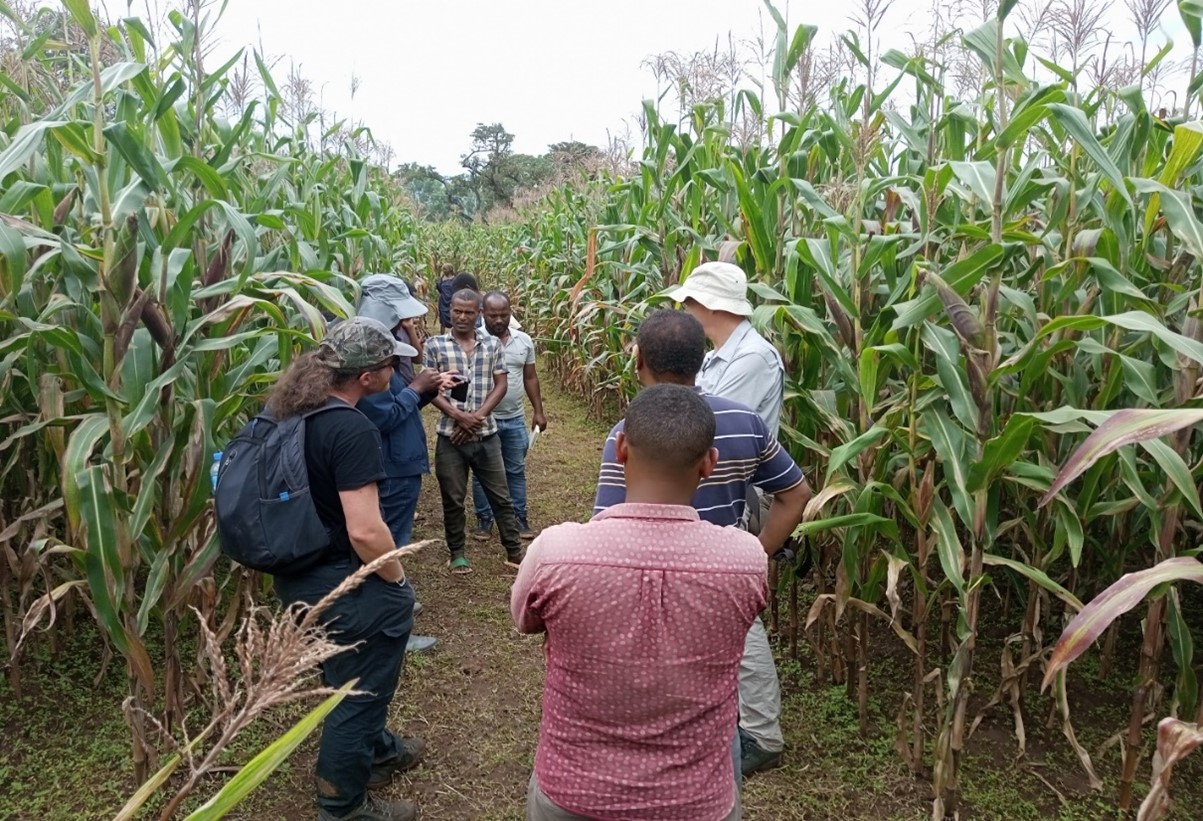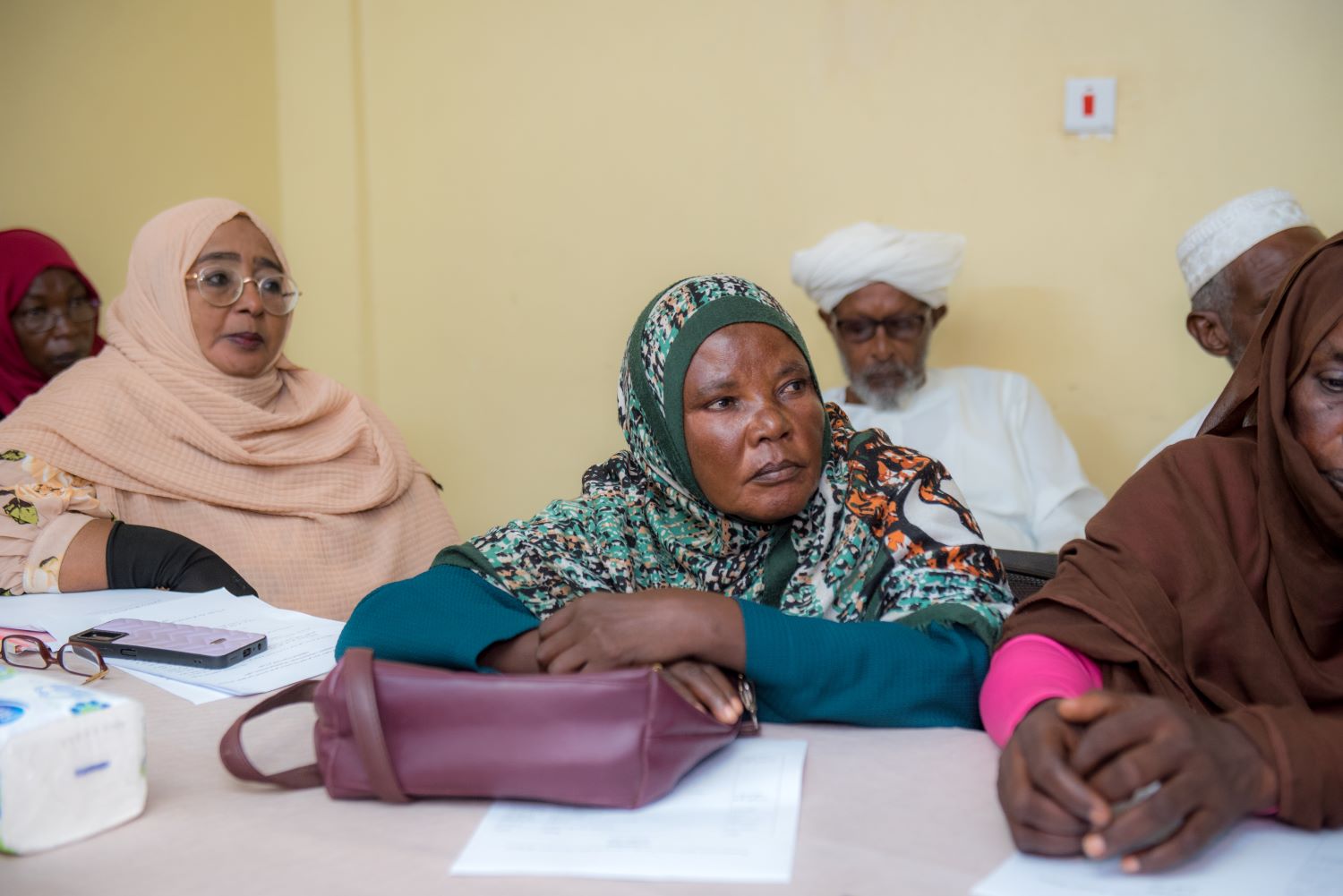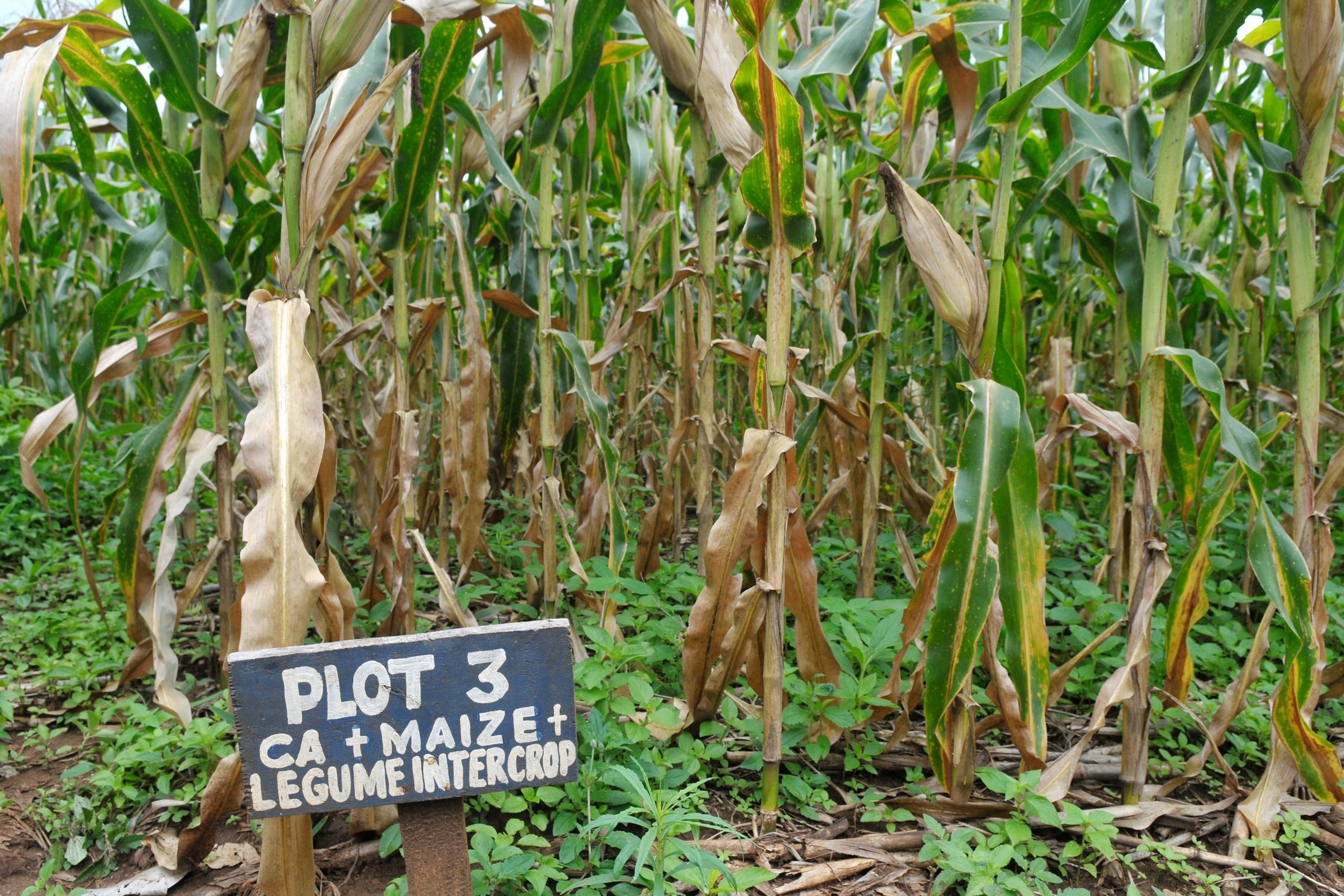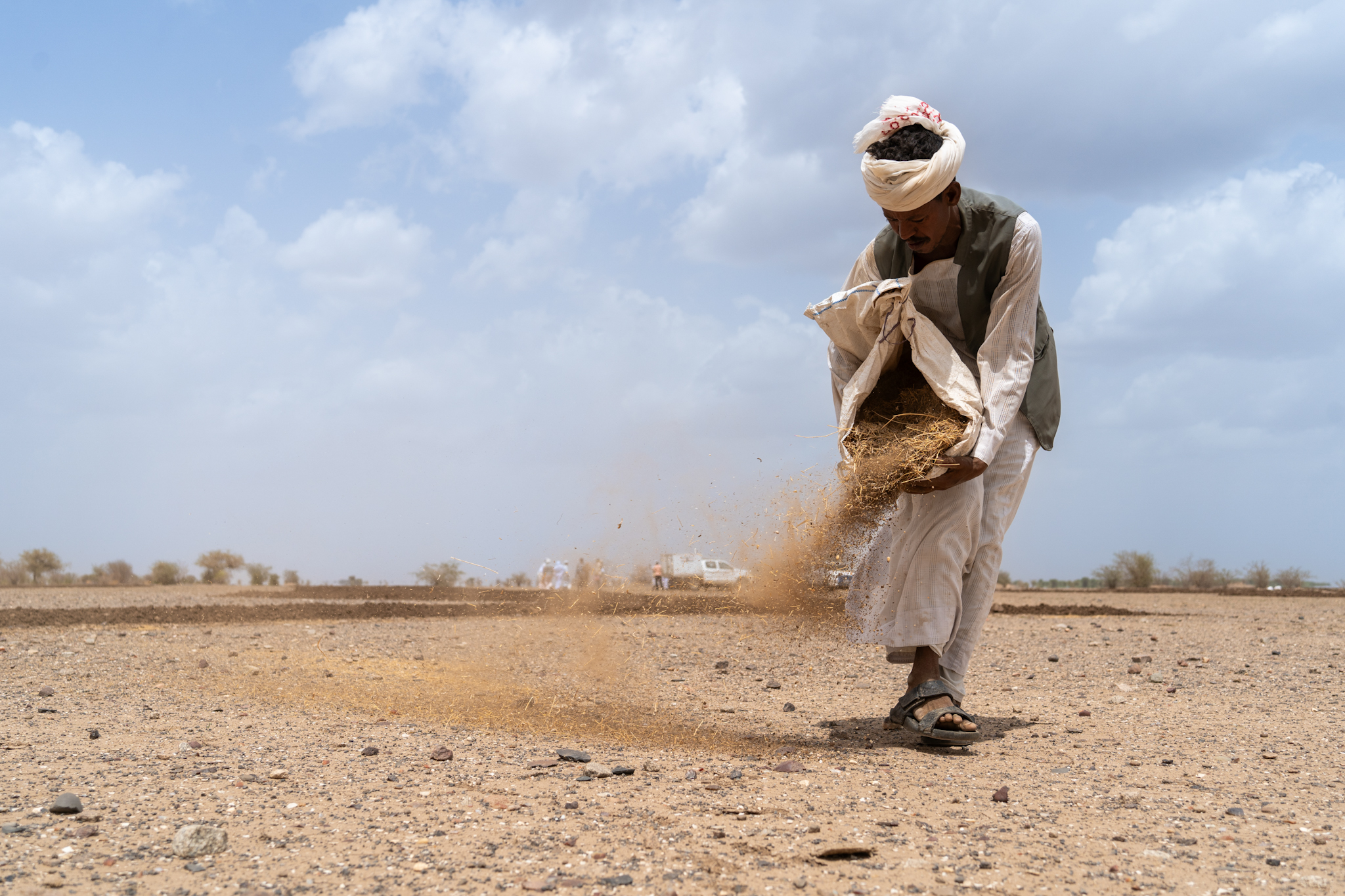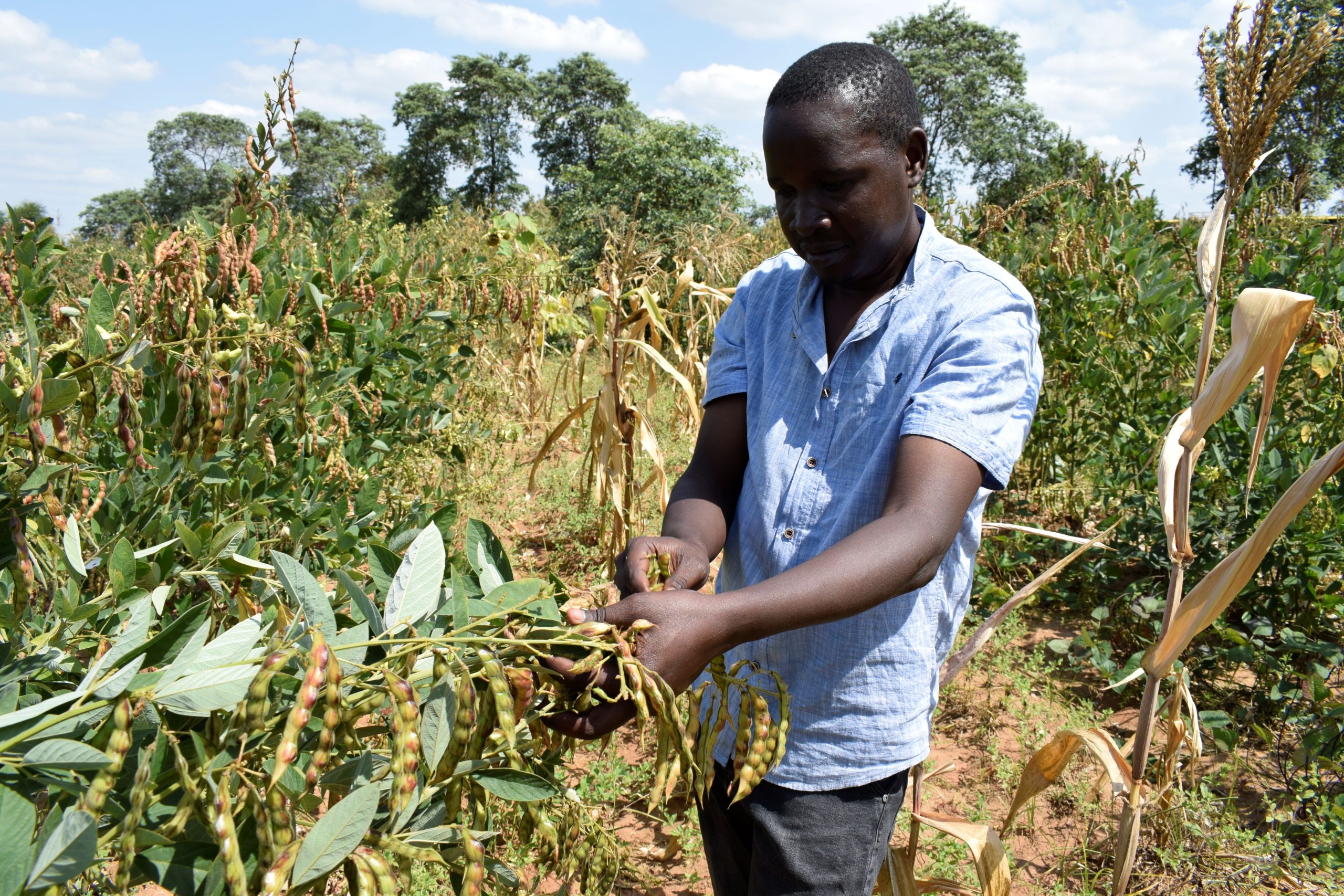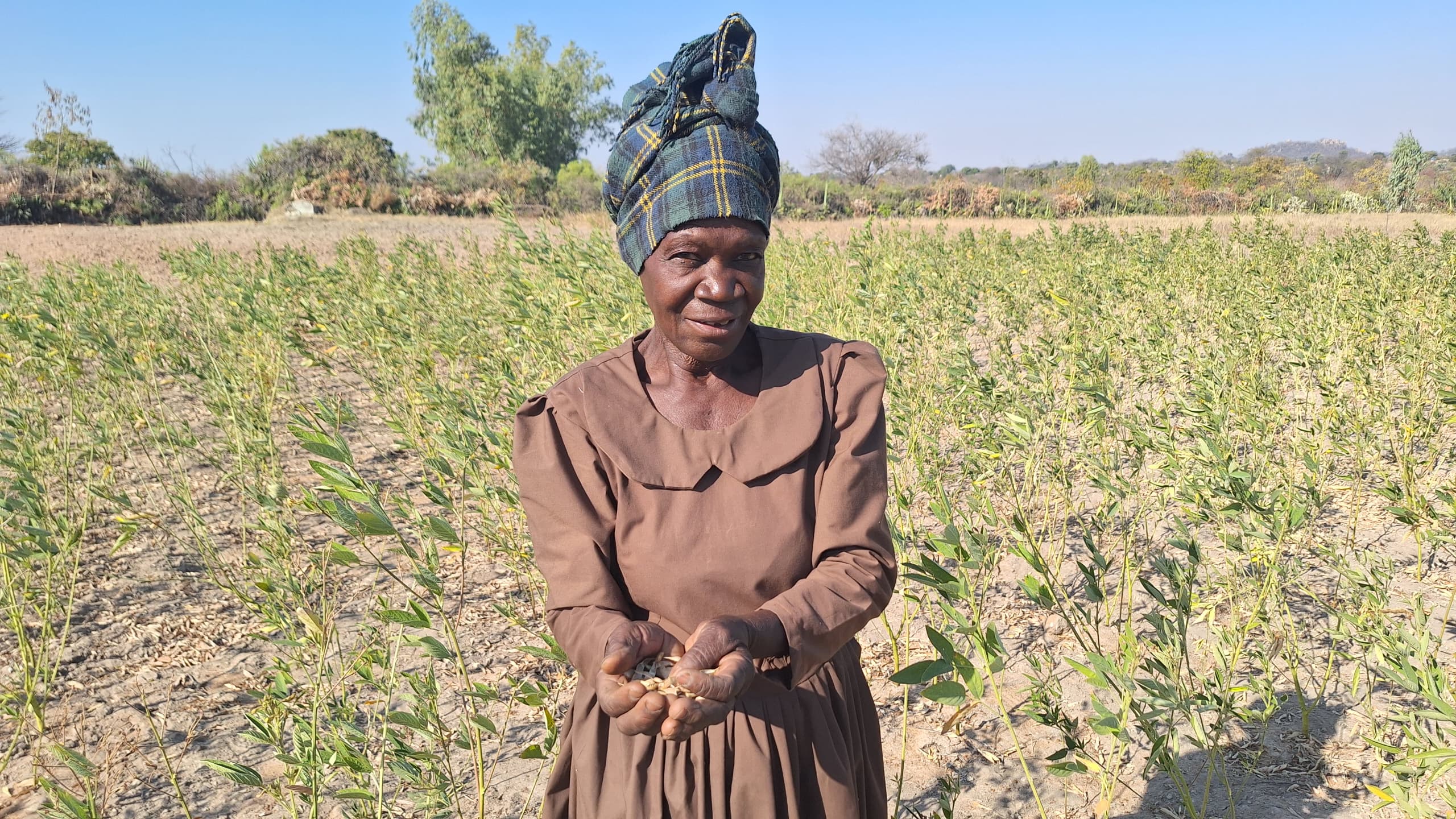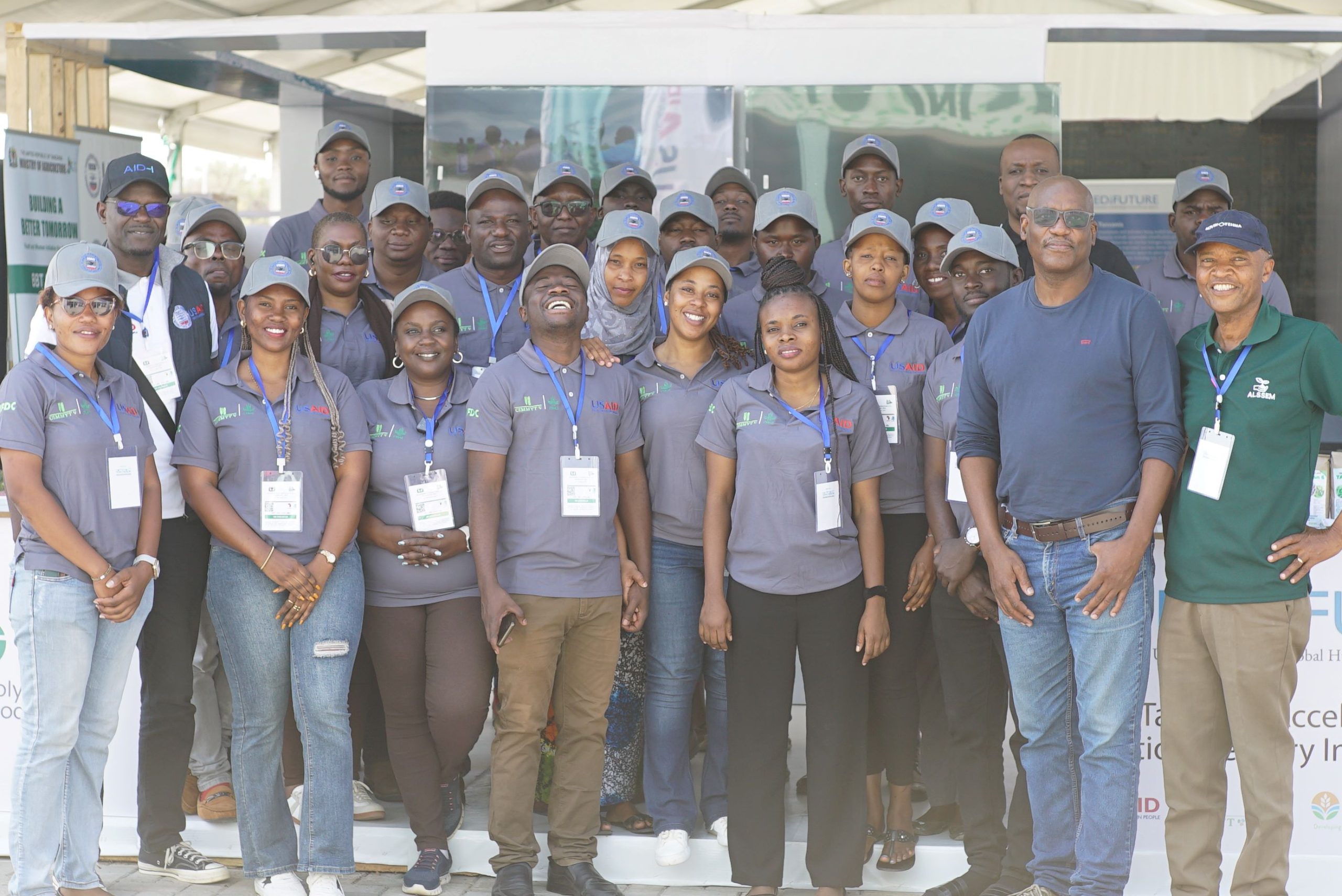Africa
CIMMYT’s work in Africa helps farmers access new maize and wheat systems-based technologies, information and markets, raising incomes and enhancing crop resilience to drought and climate change. CIMMYT sets priorities in consultation with ministries of agriculture, seed companies, farming communities and other stakeholders in the maize and wheat value chains. Our activities in Africa are wide ranging and include: breeding maize for drought tolerance and low-fertility soils, and for resistance to insect pests, foliar diseases and parasitic weeds; sustainably intensifying production in maize- and wheat-based systems; and investigating opportunities to reduce micronutrient and protein malnutrition among women and young children.
Monica Fisher
 Gender equality, youth and social inclusion
Gender equality, youth and social inclusion
Training the next generation of plant breeders with VACS
 Capacity development
Capacity development
The Vision for Adapted Crops and Soil (VACS) Capacity Project aims to train scholars and professionals in Africa in the latest plant breeding technologies
ADCIN strengthens agricultural capacity and resilience in sub-Saharan Africa
 Capacity development
Capacity development
CIMMYT is strengthening Africa’s dryland regions by building capacity in seed systems, crop improvement, business sustainability, and data-driven agricultural innovation
Improving Ethiopia’s Agricultural Systems Through Collaborative Research
 Climate adaptation and mitigation
Climate adaptation and mitigation
Discover how CIMMYT and Ambo University’s groundbreaking collaboration on climate-smart agriculture and innovative crop rotations is transforming Ethiopian farming for sustainable food security
A blueprint for soil health initiatives
 Environmental health and biodiversity
Environmental health and biodiversity
Methods developed under CIMMYT’s GAIA project and adopted by national partners recognized as a success for acid soil remediation in Ethiopia
The Impact of War on Agrifood Entrepreneurs in Sudan: Gendered Insights from Participatory Action Research in Kassala and Gadarif States
 Climate adaptation and mitigation
Climate adaptation and mitigation
CIMMYT, through the USAID-funded SASAS initiative, empowers Sudanese farmers and herders to reduce reliance on aid by supporting agrifood entrepreneurs in overcoming war-related challenges and fostering resilience through collaboration and community efforts
Breaking barriers in Mshewe: How Zinduka Women are Transforming Agriculture and Empowering Communities
 Gender equality, youth and social inclusion
Gender equality, youth and social inclusion
With USAID and CIMMYT’s AID-I project, women in rural Tanzania are overcoming adversity, pioneering seed production, and redefining gender roles
CIMMYT Expands Climate-Smart Interventions in Southern Africa
 Climate adaptation and mitigation
Climate adaptation and mitigation
CIMMYT is leading efforts in Southern Africa to empower farmers with climate-smart agriculture, resilient seed systems, and early-warning tools, ensuring food security and sustainability amidst unprecedented drought conditions
Helping herders access grazing lands and water sources amid prevailing food insecurity in Sudan
 Climate adaptation and mitigation
Climate adaptation and mitigation
CIMMYT’s Sustainable Agrifood Systems Approach for Sudan (SASAS) program works to ensure that herders have access to rich grazing lands and safe drinking water to improve foraging conditions for their livestock
Machakos farmer reaps prosperity with new pigeon pea variety
 Capacity development
Capacity development
Festus Muthoka’s story reflects broader efforts in the agricultural community to introduce more resilient crop varieties that meet the needs of farmers in challenging environments
The Sudan Food Security Initiative: Helping Farmers Produce High-Quality Seed Varieties
 Capacity development
Capacity development
CIMMYT’s SASAS program boosts food security in conflict-affected Sudan by introducing high-yielding sorghum varieties through demonstration fields. Part of the Sudan Food Security Initiative (SFSI), it strengthens informal seed systems and helps farmers increase yields.
SASAS and partners use the Mega Demonstration Protocol with mother and baby trials in 10 villages in Kassala State to promote drought-tolerant sorghum adoption.
Scaling fodder innovations to improve livestock productivity in Zimbabwe’s semi-arid regions
 Climate adaptation and mitigation
Climate adaptation and mitigation
The LIPS Zimbabwe project boosts livestock productivity and climate resilience by introducing drought-tolerant fodder crops and mechanization to farmers in semi-arid regions
Nane Nane fair in Tanzania showcases agricultural innovation and collaboration
 Innovations
Innovations
The Nane Nane fair was more than just a display of agricultural technologies; it was also a celebration of the successes of local entrepreneurs who had benefited from the AID-I program

